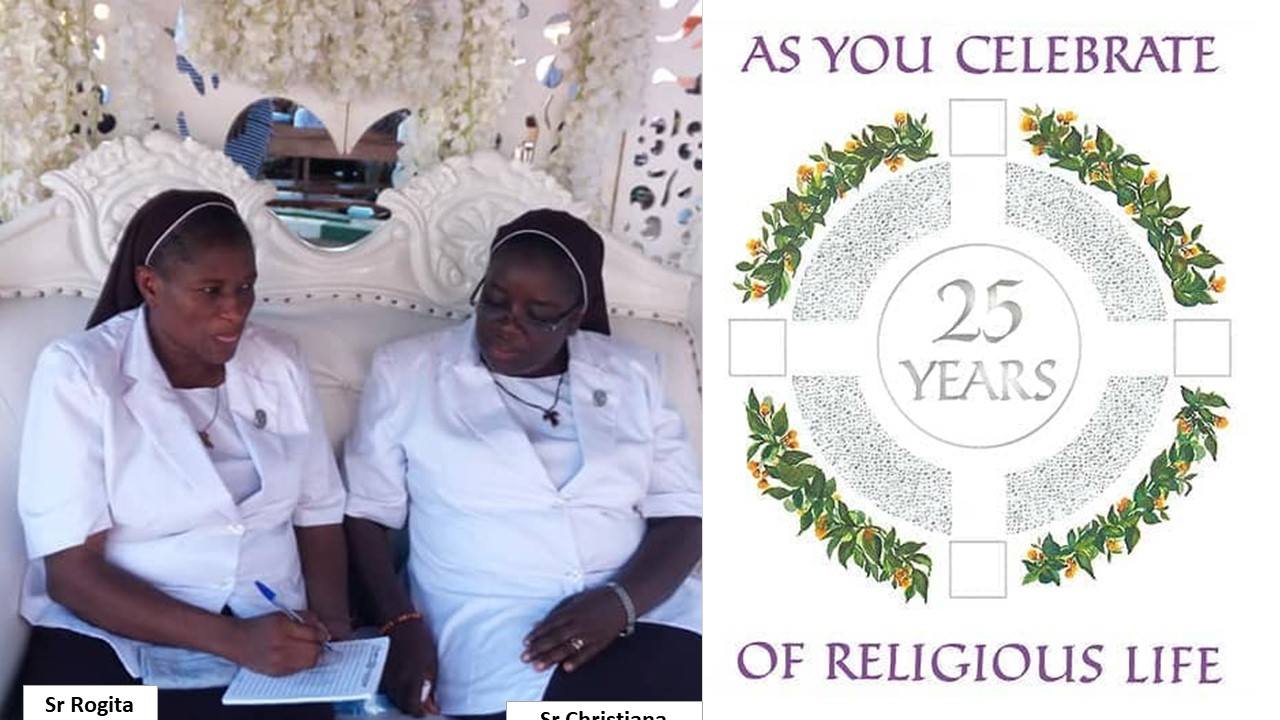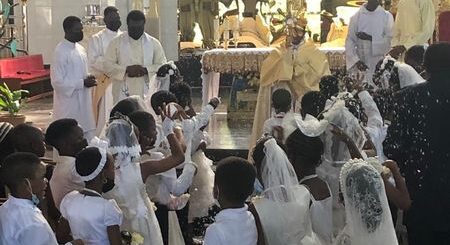Be There for One Another
by ARCH BISHOP · September 6, 2020
23rd Sunday Homily by Archbishop I. A. Kaigama, St.Anthony’s Parish, Kabusa, Abuja. September 6, 2020.
Readings: Ezekiel 33:7-9, Romans 13:8-10, Matthew 18:15-20
A human being is gregarious. This means that he or she needs friendly and social company. From the very beginning God said, “It is not good for man to be alone; I will give him a helper who will be like him” (Gen. 2:18). God intended that we should be there for one another; just as in the first reading prophet Ezekiel was asked by God to speak up and warn the wicked about their ways, so that they wouldn’t die in their sins. (cf. Ez. 33:7-8). God created us not just for our personal good but to be also responsible for each other’s physical and spiritual well-being; to be our brother’s and sister’s keeper.
The word Church in Greek is ekklesia and it comes from the verb kaleo, to call. We are called as the new people of God gathered as brothers and sisters of one another. Part of our social responsibility is fraternal correction. God wants us to understand that true love will neither rejoice at what is wrong, nor fail to correct what is wrong. In a world where people tolerate and even celebrate evil doers and criminals as heroes; those who dare to rebuke evil would be seen as troublemakers. The readings today call us to be bold and courageous, even at the risk of being misunderstood and even mistreated; we must dare to be prophetic by calling evil by its name and correcting our erring brothers and sisters, otherwise, we would also share in their punishment.
Pope Benedict XVI in his September 4, 2011 Angelus Address said, “Fraternal correction is the process of sharpening or perfecting a friend through difficult conversation, pointing out their flaws or sins with the purpose of finding a solution to help them work on that weakened area, all through the lens of charity.”
Dear friends, Jesus urges us to immediate reconciliation with our neighbours: “If your brother sins against you, go and tell him his fault, between you and him alone. If he listens to you, you have gained your brother” (Mt. 18:15). Jesus Himself corrected His disciples on many occasions. He reproved them when they were jealous of a man who was casting out demons using the name of Jesus (cf. Mk 9: 38-40). He rebuked Peter when he failed to accept that the Messiah was destined to suffer and to die (cf. Mt. 16:23). He also reproved the two sons of Zebedee (James and John) whose mother asked for the privilege that one should sit at His right and the other at His left (cf. Mt. 20:20-23).
Each time we have differences with one another, let us follow the three-step method outlined by Jesus: First, correction must be between the parties involved and if not successful, bring the matter before two trustworthy Church members and if this also fails, the third step will be to bring the matter to the assembled community (the Church), hoping that by that time the issue would be successfully resolved. Jesus does not support taking matters to court. Lawyers may not be happy with this, but the Jesus method is an alternative conflict resolution that is safer and cheaper. In Nigeria, you know the cost implications when you take your case to the police or to court. I know of a man who sold his rice, only to remember that his friend humiliated him three years earlier, and he went to file a legal case. Needless to say he lost the case and returned poorer than before.
Dialogue is a great tool in the process of reconciliation and peace building. Many local and international issues and even wars could be settled amicably through sincere dialogue. Dialogue is much cheaper than confrontation.
Having concluded our General Assembly only yesterday, tagged, “Catholic Archdiocese of Abuja: Together in Evangelization”, we as an Archdiocese have resolved to strengthen the Catholic faith in many more parts of our Archdiocese with a renewed missionary zeal. If in the future differences occur, we encourage peaceful resolution of disputes between outstations, among church societies, between parish priests and parishioners, even between priests and the Archbishop, to create a better environment for healthy growth.
We hope that members of the 30 new pastoral areas and indeed all of us, will always refer to Matthew 18:15-17 whenever a misunderstanding occurs. When we behave this way, we can do great things together for God’s glory.
St. Paul is clear in his letter today that we owe love to one another; love that is pure and genuine; without envy or greed.
The big lesson today is that we are called to be peacemakers and reconcilers. When the COVID-19 will have hopefully gone and we begin to offer the sign of peace at Mass, let it be out of real love because we are brothers and sisters in Christ




